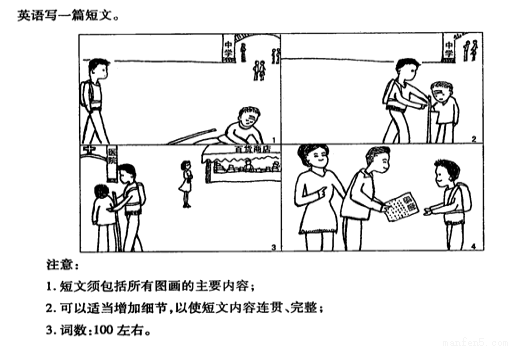题目内容
“ON a scale of one to ten, how would you rate your pain?”
Baymax, the plus-sized white robot, asks the question each time he detects (探测到) his patient’s pain. Considering that he is hardly like a typical Marvel superhero, how could this robotic caregiver from Big Hero 6 have stolen viewers’ hearts and taken home this year’s best animation Oscar?
Set in fictional San Fransokyo, the film follows Hiro, a 14-year-old robotics genius (天才). After his brother dies, he goes on a journey to save his city from an evil masked man with his brother’s invention, Baymax.
Baymax was named “Disney’s most straightforwardly adorable (萌的) character” in years by The Telegraph. He has a pure white pear-shaped body and stumpy elephant legs. And his eyes –just two black dots with a line through them – can blink (眨眼) quickly or slowly. Baymax’s physical appearance “works with his personality because he’s purely good and naive (天真的),” co-director Don Hall told The Hollywood Reporter.
Sometimes Baymax is awkward. Moving in tight spaces gets challenging with his potbelly (大肚子). And when his batteries run low, he behaves like an amusing drunk. “This means that he is not at all intimidating (令人生畏的) and is easy to like,” commented The Straits Times in Singapore.
Baymax is a comforting friend, the kind that perhaps everyone needs.
After he diagnoses (诊断) Hiro with feeling sorrow, he says: “Physical comfort helps too,” and pulls Hiro into a hug. He pats his head, saying: “There, there.”
The team’s car crashes into the water at one point, and they have to walk shivering (颤抖) back home. Baymax notices that everyone’s body temperatures are low, so he turns on his internal heaters. Everyone cuddles (依偎) up with him. “This is like spooning (拥抱) with a warm marshmallow (棉花糖),” says Fred, one of the characters.
One minute, he is used as a bouncy castle (充气城堡), and the next he transforms into a superhero.
To fight against the villain, Hiro upgrades Baymax so that the robot can attack and fly. The robot has a hard time figuring out these new skills, but after he realizes that Hiro is happy with his improvement, he immediately becomes an expert. “The treatment is working,” he says.
Tencent Entertainment calls the amazing Baymax a “perfect companion”. “He is quiet, clumsy, and adorable. But at important times, he steps up and stops at nothing to protect his friends from harm, even if it means that he has to sacrifice his life. This is an idealized (理想化的) relationship in harsh reality,” the site commented.
1.What does Baymax do when he discovers Hiro is sad?
A.He tries to amuse him by behaving awkwardly.
B.He leaves him alone.
C.He comforts him with a hug.
D.He advises him to go for a walk.
2.Which of the following adjectives best describe Baymax?
A.Considerate and selfless.
B.Adorable and humorous.
C.Clumsy and cautious.
D.Brave and proud.
3.What is the article mainly about?
A.The plot and background of the movie Big Hero 6.
B.The friendship between Hiro and Baymax in Big Hero 6.
C.The reasons for the popularity of Baymax from Big Hero 6.
D.What sets Big Hero 6 apart from other animation movies.
4.Which of the following is TRUE about Baymax?
A.Baymax’s awkwardness actually makes him more adorable and popular.
B.Baymax was invented by Hiro, a robotics genius.
C.Baymax’s physical appearance doesn’t quite match his personality.
D.Baymax looks like a typical Marvel superhero.


